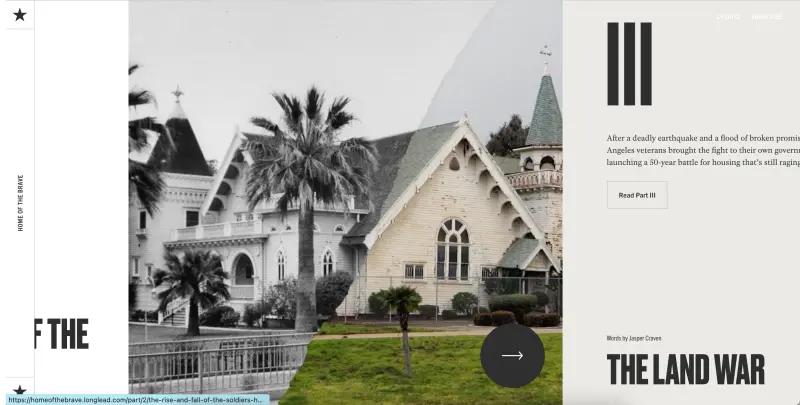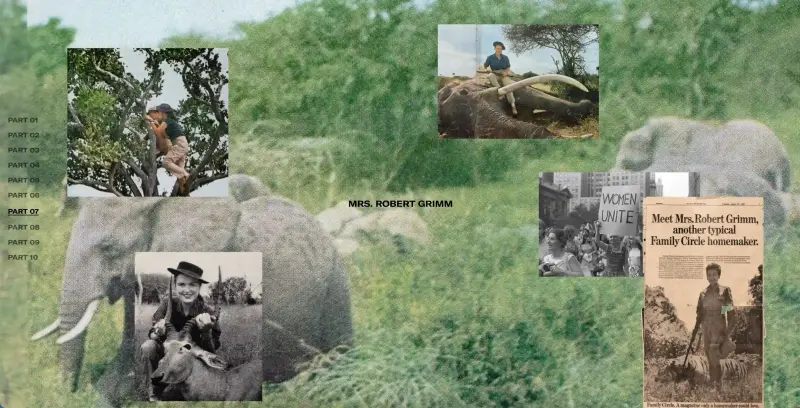
US in-depth reporting outlet Long Lead is rich in praise for its journalism but yet to make any money.
Describing itself as a “story studio”, the outlet has won a Webby Award in each of the last two years, as well as an American Journalism Online Award and an acclamation as the “best specialised journalism site” last year from the Society of Professional Journalists.
Despte making almost no revenue, it pays journalists “the highest rates” to carry out months-long reporting projects using venture capital invested by a hedge fund manager and occasional high-stakes poker player.
Editor, John Patrick Pullen (pictured above), told Press Gazette this week he’s confident that, revenue or no, what started out as a “proof of concept” has proven itself since its 2021 launch.
Trying to get freelance journalist’s stories ‘what they deserve’
Long Lead’s most recent release, “Home of the Brave”, is a sweeping multimedia project that asks why 400 acres of prime Los Angeles land gifted over a century ago for the purpose of housing homeless veterans is not today being used for that purpose. It opens with a cinematic dive from the skies above the city into a homeless encampment, before pulling the reader through five illustrated articles and one half-hour documentary reporting on different faces of the issue.

It is typical of the style of expansive stories Long Lead publishes — and like most of its output, it was not produced by in-house staff.
Home of the Brave names six journalists on its byline, only one of whom, Pullen, is employed by Long Lead. He told Press Gazette that the company even brings in a freelance to be the editor on all its stories.
Pullen said he noticed at his previous employers Time and Fortune that stories reported by freelances rarely received the same resources as those reported by staff.
The stories “just weren’t getting what they deserve”, he said, whether in terms of attention, promotion or getting a photographer assigned.
Long Lead has only four full-time staff, and this outward-looking set-up is part of why the outlet describes itself not as a news site but a “story studio”.
“I equate us almost to a movie studio,” Pullen said. “Because we work on these big projects that are really concentrated, and then when they come out we promote the heck out of them.”
He also stops short of calling it a news site because Long Lead tends to avoid automatically publishing its stories as articles.
He said of articles: “You build a website with Word Press and then you stick all your stories in there… That is an investment that the company has made in those frameworks, and then they have to recoup that. And that’s understandable. But it does nothing to help tell the story better.
“Because what happens if you decide that this is a better podcast? You have the audio, we could turn this into a podcast, but they’ve already made this investment in Word Press, so that’s not going to happen.
“What we do is we work with our journalists… And we say, well, what is this story? What shape should this take? And then we build around it.”
Hedge fund manager and high-stakes poker player Bill Perkins to Long Lead: ‘Show me better’
Besides some income produced by ads on Long Lead’s podcast series Long Shadow, which is now in its third season, Pullen said “right now we’re not generating revenue”.
Nonetheless, he said: “We pay, and we pay well. We pay just as high as the highest rates going for the major publications.”
Partially this works out budgetarily because Long Lead has a low volume of output: when asked how often the outlet publishes stories, Pullen said: “When they’re ready.” (In practice that works out at about one feature every other month or so.)
But Pullen was candid that, at present, Long Lead is running off a chunk of venture capital provided by a firm named Small Ventures USA.
“We’re building and learning, and they have a lot of patience for us, which is wonderful,” Pullen said.
Small Ventures USA is run by Bill Perkins, a hedge fund manager and natural gas derivatives trader who was once described by a prominent peer as the industry’s “last cowboy”.
In 2020, Perkins published a book titled Die With Zero in which he advocated reaching the grave with no money left in the bank, and poker database The Hendon Mob lists his total live earnings at $5.5m.
“Bill’s not opposed to a bet,” Pullen said. “His position on this is that media can be done better: show me better.” (He stressed, however, that there was a “firewall” between Long Lead’s operations and its funders.)
Another way Long Lead has attempted to do journalism better is through what it calls “creator-friendly rights”.
“We licence the editorial from the writer,” Pullen said. “We don’t have ownership of it.”
This is a radical departure from the way most publications handle copyright and intellectual property: as Press Gazette has covered previously, most contracts in journalism, for either staff or freelance reporters, require journalists to cede their IP rights to the publishing company. That means that if, for example, a series of stories is optioned as a film, there is rarely an obligation to feed any of the profits back to the reporter.
Another of Long Lead’s major features, The Catch, covers the career of trailblazing Sports Illustrated journalist Virginia Kraft, asking why she’s not a famous name today.

“I would love to see a film version of The Catch,” Pullen said. “I think it’s a great, wonderful story. Somebody should option this thing. And when they do, Long Lead will get zero dollars and zero cents.
“Emily [Sohn, the reporter] will get it all, and I think that that’s wonderful.”
The commercial goal with this strategy, Pullen said, is “to get the best possible work”.
“I want writers to know this. I want writers to know that they own their work if they work with us. And we promote the heck out of it, because we want everybody to see this great work that we’ve poured tonnes of resources into, but also we want to attract folks to the Long Lead. We want to get folks subscribed to our newsletters so that they can get access to the next story.”
‘Long Lead is a fight against the algorithm’
Asked what sort of pitches he’s looking to receive, Pullen said: “Impact is the biggest thing.”
“It’s going to be a story that’s going to resonate, it’s going to live on, and it’s going to be able to make a difference somehow…
“My competition is Facebook. I want you to spend time with this feature rather than spend time with some of the toxic stuff that we find through the algorithms.
“We didn’t start out this way, but the way I view it now is: Long Lead is a fight against the algorithm. And it’s a fight against AI, in many ways. We don’t use that — we use journalists, we use their reporting, we use photographers.”
Pullen was frank that there’s work to do building Long Lead into a profitable business, saying: “It’s a hard bet to have pan out.”
But he added: “It can pay out — it’s just the process of figuring out how. I think that the entire industry hasn’t really figured it out — they’ve just had a lot of head start on us.”
Citing the awards Long Lead has run over the past three years, he said: “We have beat NBC. We have beat The Washington Post. We have beat — and been beaten by — The New York Times and New York Times Magazine…
“Right now we’re in our early stages. If you had talked to me a couple of years ago, I would have said we’re in ‘proof of concept’, but we’ve proved the concept.”
Email pged@pressgazette.co.uk to point out mistakes, provide story tips or send in a letter for publication on our "Letters Page" blog
